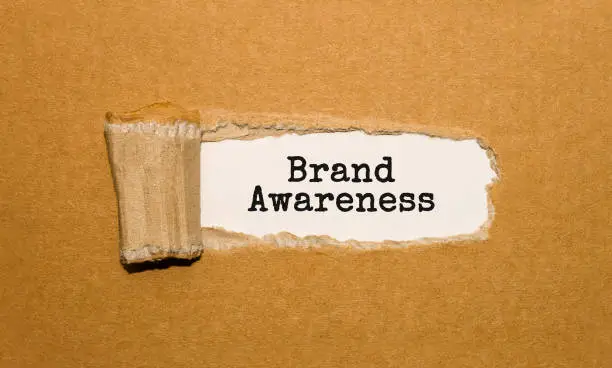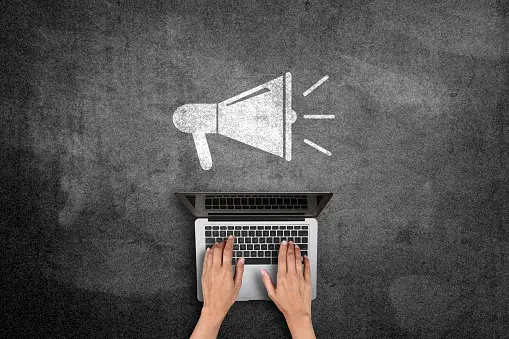
But hold your horses, it’s not just about people recognizing your name. It’s about what they associate with your brand. When your audience knows who you are, what you offer, and why you’re on the bee’s knees, you’ve hit the brand awareness jackpot. This familiarity builds trust and loyalty, the secret sauce to a killer customer relationship.

Track how often and where your brand is mentioned online. Tools like Google Alerts, Mention, and Brand24 can help you keep tabs on your brand’s online presence. Set up alerts for your brand name, key products, and relevant industry terms to stay informed about what people are saying about you.
Other valuable metrics include branded search volume – how often people search for your brand name directly. This indicates brand recognition and interest. Referral traffic can show how effectively other sites are driving traffic to your website. Brand sentiment analysis, which measures the tone and emotion behind social media mentions, can provide deeper insights into how your brand is perceived.
Let’s look at some brand awareness examples to see how the big dogs do it.
Coca-Cola’s “Share a Coke” campaign swapped their logo with popular names, creating a personal connection with consumers and boosting both recognition and sales. This genius move didn’t just personalize the brand; it made people want to share their experiences on social media, spreading the word like wildfire.
Nike’s “Just Do It” slogan didn’t just promote products; it pushed a lifestyle. It resonated deeply with their audience and remains iconic to this day. This campaign transcended sportswear and became a motivational mantra, making Nike a household name synonymous with perseverance and achievement.
Apple’s product unveilings are legendary. They create immense buzz and anticipation, ensuring everyone knows about their latest innovations. Apple’s meticulous attention to design and user experience, combined with their ability to generate excitement, keeps them at the forefront of consumer minds.
Another heavy hitter is the “Red Bull Stratos” campaign. By sponsoring Felix Baumgartner’s jump from the edge of space, Red Bull didn’t just break records; they sky-rocketed their brand awareness. The event was watched by millions worldwide and associated the brand with extreme adventure and energy. This bold move cemented Red Bull’s image as a brand that pushes the limits and embraces daring feats.
Creating a robust brand awareness strategy involves several steps.
First, set clear objectives. What do you want to achieve? Whether it’s increasing website traffic, boosting social media followers, or improving brand recall, having clear goals is crucial. These objectives will guide your strategy and help you measure success.
Identify where your audience hangs out the most and focus your efforts there. Not all platforms will be a good fit for your brand. For example, if you’re targeting professionals, LinkedIn might be more effective than Instagram. Understanding your audience’s preferences and behaviors is key to choosing the right channels.
Building backlinks from reputable sites can enhance your site’s authority and drive more traffic to your pages. Reach out to industry influencers, bloggers, and websites to feature your content or collaborate on projects. These backlinks can boost your SEO and increase your brand’s visibility.
Local SEO is another important aspect, especially for businesses with physical locations. Optimizing for local search terms can help you reach nearby customers who are searching for your services. Ensure your business information is accurate and up-to-date on Google My Business and other local directories. Don’t forget to claim and optimize your Google My Business listing to improve your local search presence.
As technology evolves, so do the strategies for building brand awareness.
Tailoring content and marketing messages to individual preferences can significantly enhance brand awareness and customer loyalty. Personalized marketing can make your audience feel valued and understood, increasing their connection to your brand.
Augmented Reality (AR) experiences can create immersive and memorable interactions with your brand. AR can bring your products to life and offer unique ways for customers to engage with your brand. This innovative technology can set you apart from competitors and attract tech-savvy audiences.
With the rise of smart speakers, optimizing for voice search is becoming increasingly important. Voice search is changing the way people find information and make purchasing decisions. Ensure your content is optimized for voice queries to stay ahead in this evolving landscape.
Artificial intelligence (AI) is also playing a bigger role in marketing strategies. AI can help analyze consumer behavior, predict trends, and personalize marketing efforts on a scale that was previously unimaginable. Embracing these technologies can give your brand a competitive edge and ensure you stay ahead in the awareness game.
Brand awareness is not just a marketing buzzword; it’s a vital component of your brand’s success. By understanding and implementing effective brand awareness strategies, you can build a loyal customer base, gain a competitive edge, and ultimately, drive growth. So, start crafting your brand’s story, engage with your audience, and watch your brand awareness soar. Remember, the more familiar people are with your brand, the more likely they are to choose you over the competition.
Ready to boost your brand awareness? Let’s get started on that journey today!